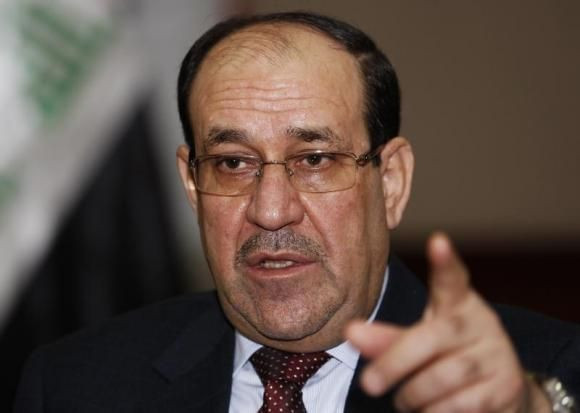Iraqi PM Maliki Won't Resign As Condition Of US Airstrikes On ISIS: Spokesman

Iraqi Prime Minister Nouri al-Maliki won’t resign as a condition for the U.S. to conduct airstrikes against rebels and has denied the claim by American political leaders that he contributed to the current crisis by excluding Iraq’s Sunni majority, his spokesman said Thursday.
"Our focus needs to be on urgent action – air support, logistic support, counter-intelligence support to defeat these terrorists who are posing a real danger to the stability of Iraq, to the whole region," Maliki spokesman Zuhair al-Nahar said, according to the Guardian. He added that Maliki “never used sectarian tactics” to marginalize Sunnis.
President Barack Obama said last week that any military action taken by the U.S. in Iraq must be met with a “serious and sincere effort by Iraq’s leadership to set aside sectarian differences.” He hasn't yet made a decision on what action, if any, to take.
While Obama hasn’t publicly pushed for Maliki to resign, political leaders on both sides of the aisle said a Maliki resignation would help alleviate the crisis.
“The Maliki government, candidly, has got to go if you want any reconciliation," U.S. Sen. Dianne Feinstein, D-Calif., the top Democrat on the Senate Intelligence Committee, said Wednesday. U.S. Sen. John McCain, R-Ariz., agreed. McCain reportedly tried to persuade Obama to “make very clear to Maliki that his time is up.”
Iraq descended into chaos earlier this month when the Sunni militant group, the Islamic State of Iraq and Syria, or ISIS, started making large gains in the country's north, seizing Iraq’s second-largest city, Mosul, and other areas. On Wednesday, the al-Qaeda offshoot took control of most of Iraq’s biggest oil refinery.
On Thursday, Iraqi security forces were sending reinforcements to the strategic ISIS-held city of Tal Afar, which runs along a highway connecting Mosul to Syria.
© Copyright IBTimes 2024. All rights reserved.






















